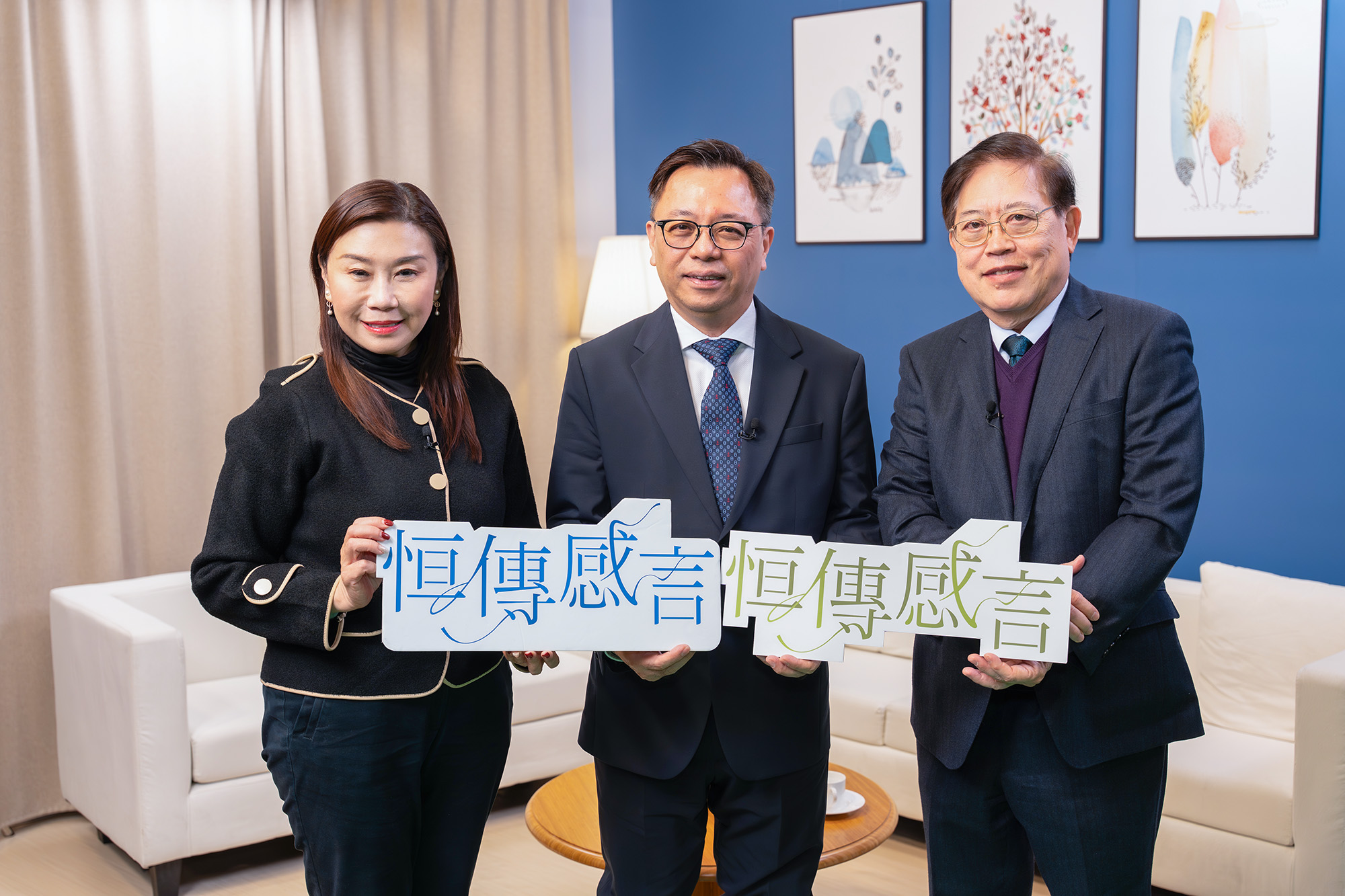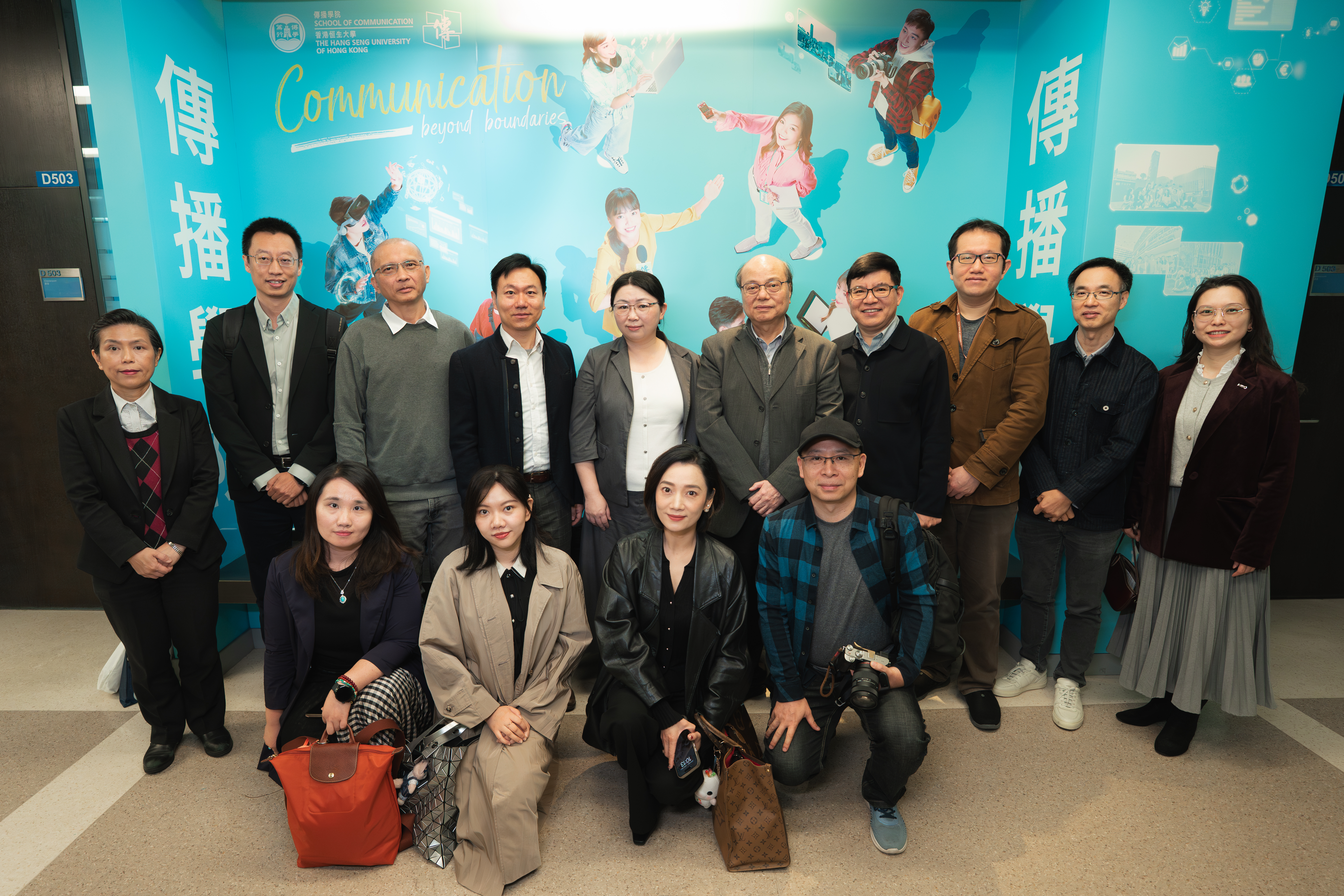The significance of major sporting events for students in the School of Communication goes beyond just watching high-quality competitions. It is more important to understand how to bring a sporting event to the public, considering the various elements involved.
The Olympics, held every four years, attract global attention, with media outlets around the world broadcasting live coverage and producing various Olympic programmes. These programmes deliver selected events and the athletes’ joys, sorrows, and sweat directly to viewers. In fact, beyond the athletes’ efforts, there is the tireless dedication and meticulous planning of the production teams working behind the scenes to present the events to the audience in a timely and engaging manner—work that viewers often cannot see.
On October 31, 2024, the School of Communication held the “SCOM Talk #53”, inviting Ms. Chirstine Yu, a executive producer responsible for sports programme production and live broadcasting at RTHK (Hong Kong Radio Television), to share her experiences of live broadcasting large-scale sporting events with students. She discussed how to plan and allocate resources, arrange production logistics, and promote the events effectively. She also shared her experiences and observations from the Paris Paralympics.
Ms. Yu first addressed the challenges of live broadcasting the Olympics, pointing out that the biggest difficulty is making choices about which events to broadcast each day among the numerous competitions. For example, at this year’s Paris Olympics, the broadcast organizer provided up to eighty signals to cover various events! How should the team select which events to broadcast? What should they do when event timings conflict? After careful consideration, Ms. Yu explained that the production team chose to broadcast events featuring the National and Hong Kong teams, while also selecting some lesser-known yet high-quality and exciting competitions. The goal was to engage the audience while broadening their perspective on world-class sports events.
Additionally, live broadcasts require hosts and commentators. Since the last Tokyo Olympics, various TV stations in Hong Kong have been competing to produce live programmes, all vying to hire professional commentators. Ms. Yu noted that due to the fierce competition, the production team quickly established a broadcast schedule and promptly invited hosts and commentators. Once suitable candidates were found, they began extensive research, including various competition formats, athletes’ progression pathways, and information about key athletes, such as their names in Chinese translation and past competition results. This information was meticulously compiled into a comprehensive reference book for the hosts and commentators to study in preparation for the broadcasts.
In addition, there are several technical issues that need to be considered, such as the production flow in the studio and coordination. Ms. Yu recalled that during the Olympics, her colleagues lived on Paris time zone but had to cater to the needs of the Hong Kong audience, requiring everyone to work day and night. Despite the difficulties, she said, “When you see Hong Kong athletes achieving good results in the control room, or even if they don’t achieve the best results but perform well, you feel happy for them, and you want to share that with the Hong Kong audience.” This sense of fulfillment among production staff arises from knowing that their hard work is worthwhile.
During the Olympics, Ms. Yu stayed in Hong Kong to oversee operations,but she personally traveled to Paris for the upcoming Paralympics. She noted that public interest in the Paralympics is significantly lower than that for the Olympics. RTHK, being a public broadcasting organization, is able to choose to broadcast events that other commercial TV stations may not show due to business considerations. She stated, “If you ask me about my feelings covering the Paralympics, I actually find it very moving.” Finally, she shared her reflections on the Paralympic athletes she encountered, expressing hope that broadcasting the Paralympics would deepen public understanding of these athletes and their stories, providing them with more recognition and encouragement.
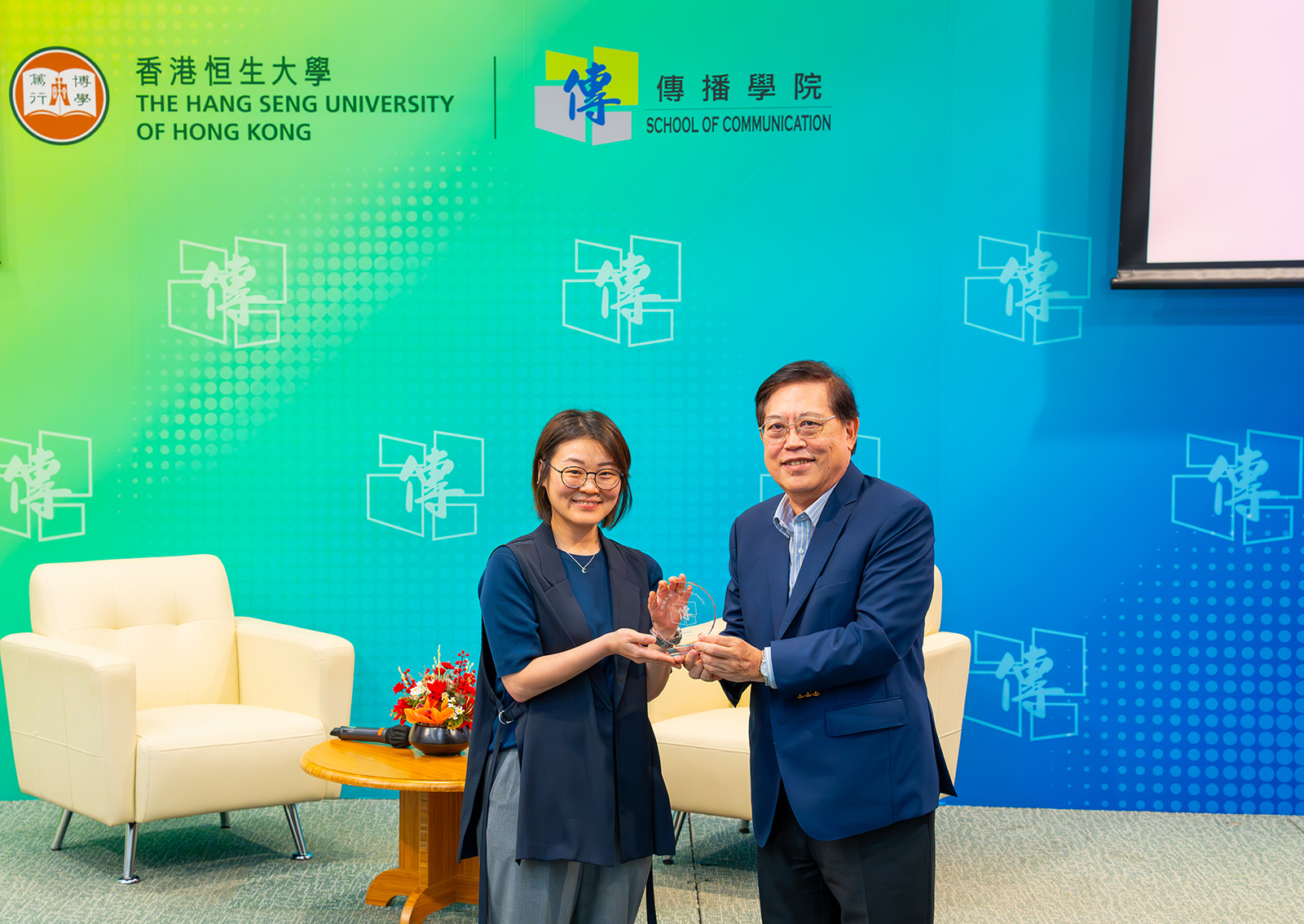
Professor Ronald Chiu, Associate Dean of the School of Communication, delivers a welcome speech and presents a souvenir to Ms. Christine Yu, Executive Producer, RTHK.
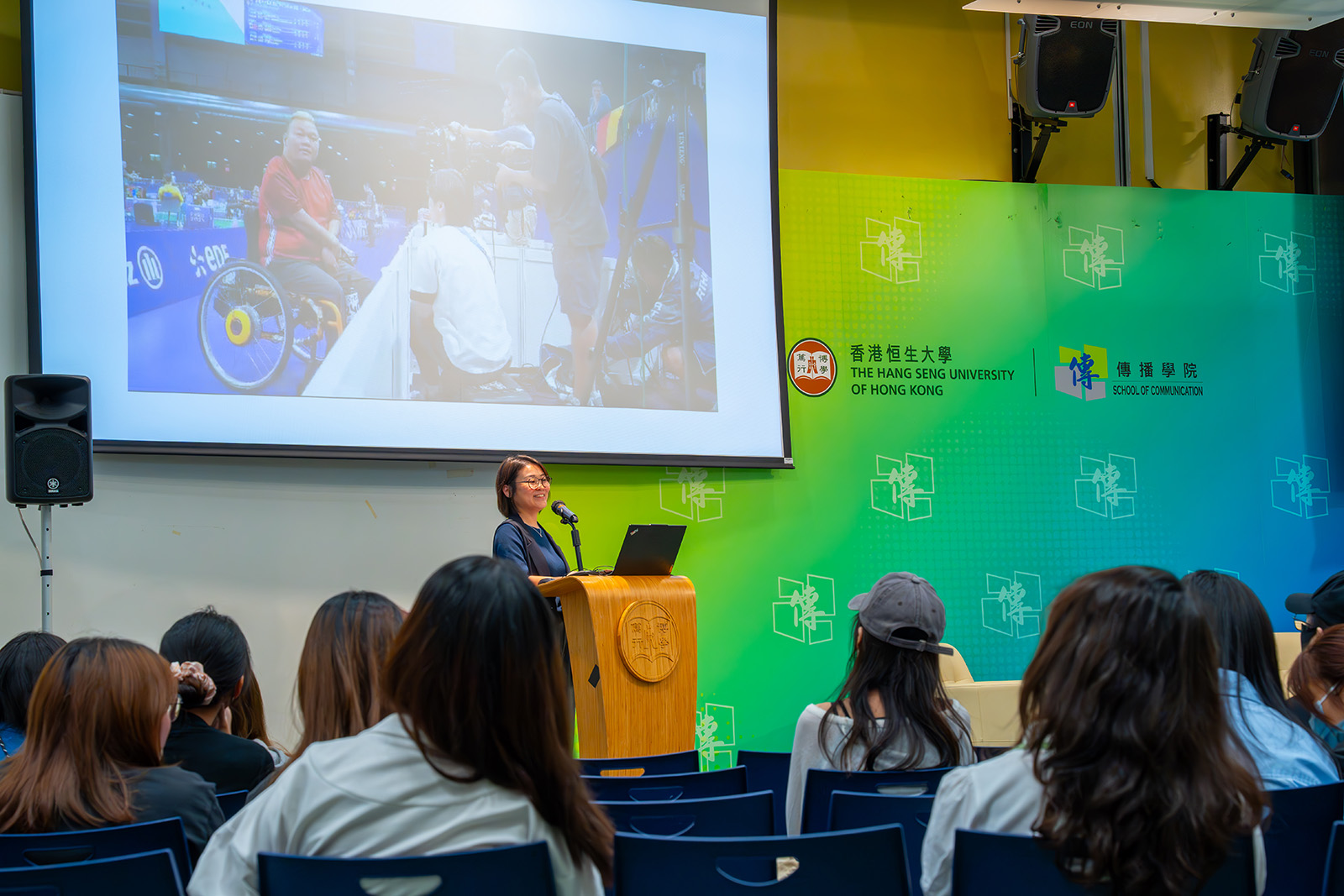
Ms. Yu shares her challenges and experiences in producing live broadcasts of games of the Olympics and Paralympics.
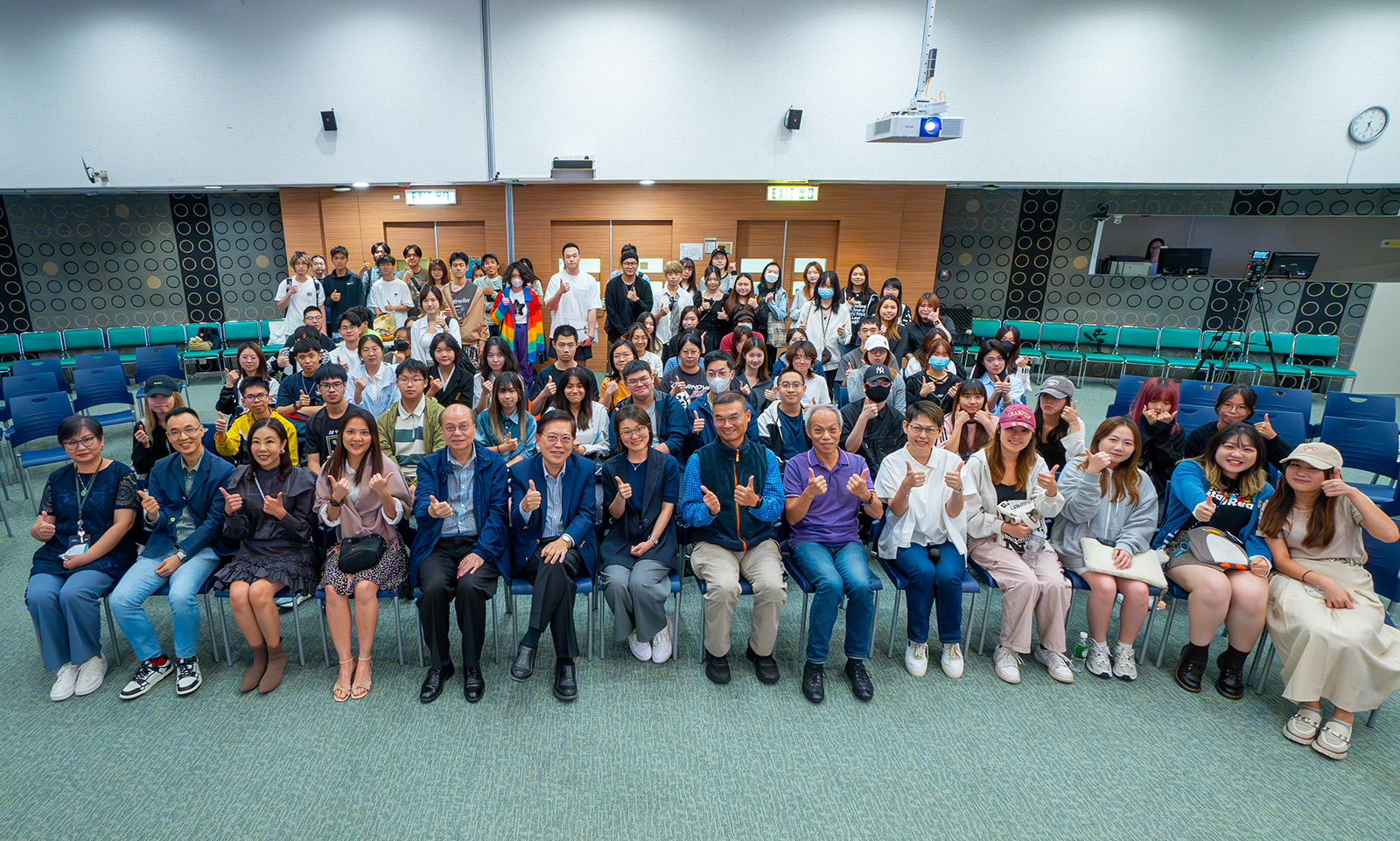
Group photo


